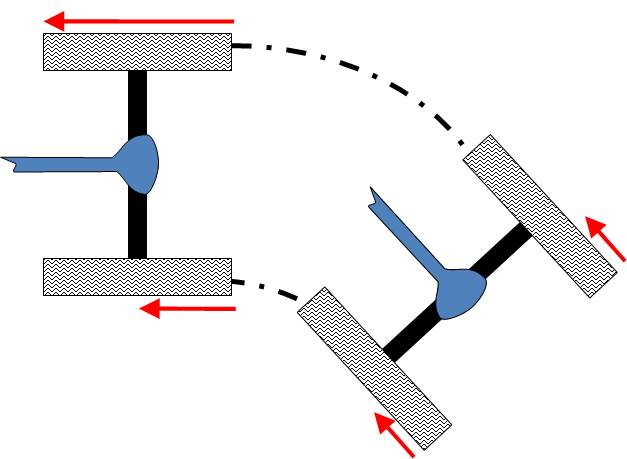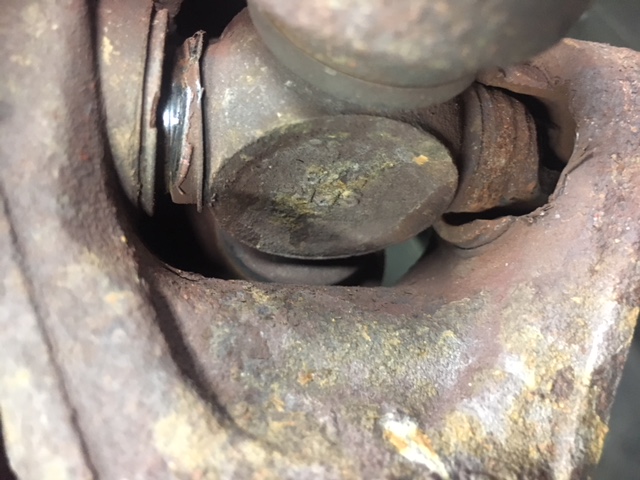The engine applied torque to the transmission, the transmission changes gears to transform the engine RPM to meet the speed and power needs of the wheels. What is missing?
- The drive shaft
- The differential
- The axle
The drive shaft connects the transmission to the differential gear box on rear wheel drive cars. The axle is connects the wheels to the differential gear box. On front wheel drive cars, the differential is integrated into the transmission. On 4 wheel drive vehicles, the transmission connects to a 4×4 transfer case and drive shafts run from that to differentials on the front and rear wheels.

What is a differential? When going around corners, the wheel closest to the corner has a shorter distance to travel than the other wheel on the axle. If it weren’t for the differential, it would be harder to turn, the vehicle would yaw slightly from side to side as the tires slip on the pavement … also increasing tire wear. The differential box has gears which allow the tires to spin at different rates. Modern differentials have “positraction” which was a term used by General Motors for their limited slip feature which applies equal torque to both wheels when driving straight, but when one wheel hits ice or slick pavement, it applies more power to the wheel with traction.
The differential contains oil for lubrication and needs to be changed routinely like the oil in your engine and transmission. In normal usage, metal fragments will build up and increase wear in the differential that will shorten its life. Generally it should be changed every 30,000 to 50,000 miles.
Symptoms of problems in the drive shaft, differential, or axle:
- Regular clunking every few feet
- Whirring noise only while decelerating at any or all speeds
-

Worn U-Joint About To Break Rumbling or whirring at speeds over about 20 mph which may change while turning.
- A howl or whine during acceleration over a small or large speed range
- Clunking only when starting to move or getting on and off the gas
- Banging, clunking, or rumble while turning
- A steady vibration that increases with the vehicle’s speed
We will be happy to test drive your car and give you a free written estimate. If you’ve gotten an estimate from another repair shop, bring that written estimate to us for a second opinion. We are a family owned business without the franchise fees and overhead costs of other repair shops and we have ASE certified mechanics, each with over 30 years of experience that can fix just what needs to be fixed and save you money in the process.
All of our work is backed by ATSG and ATRA warranties which are honored nationwide.